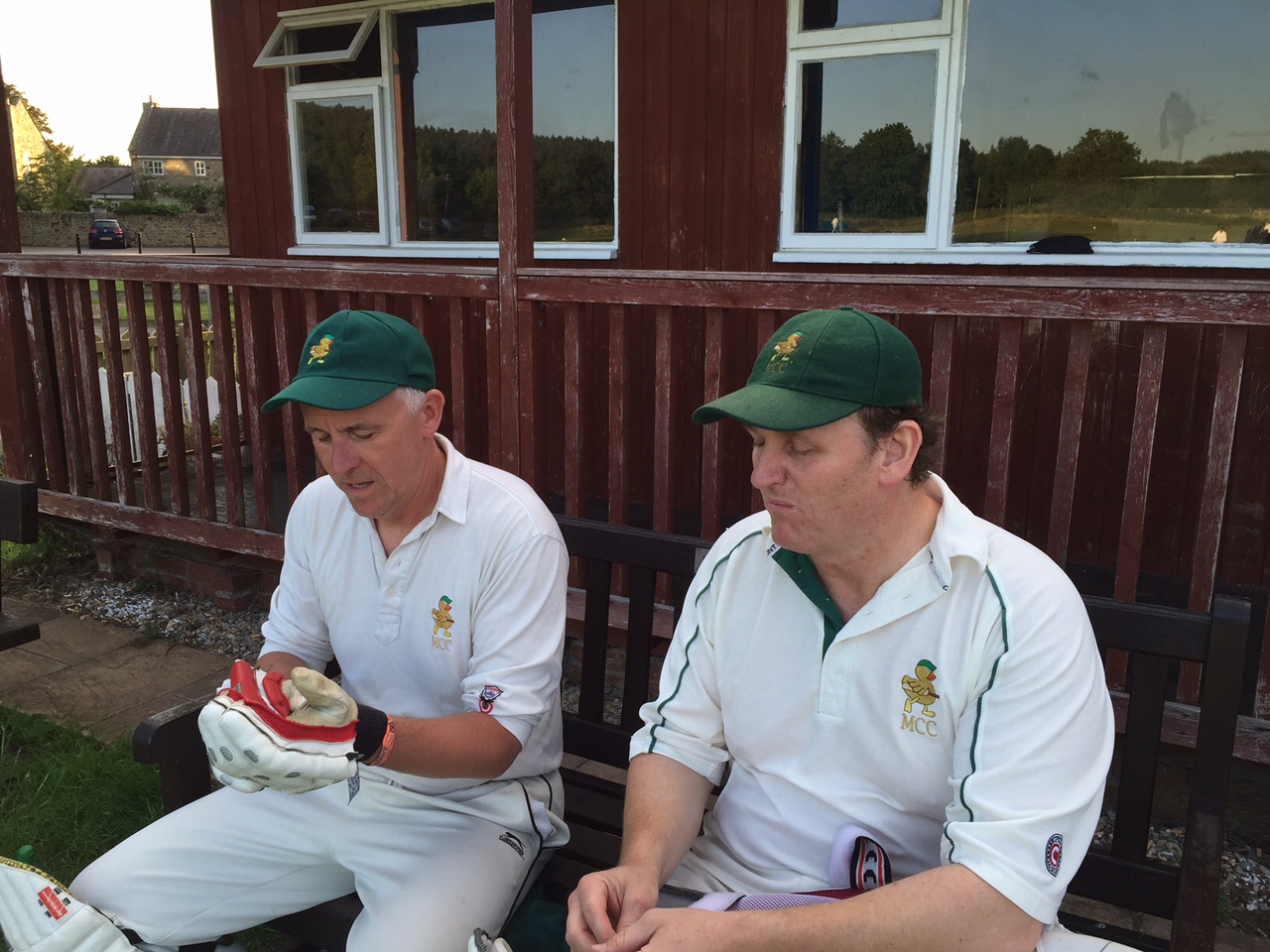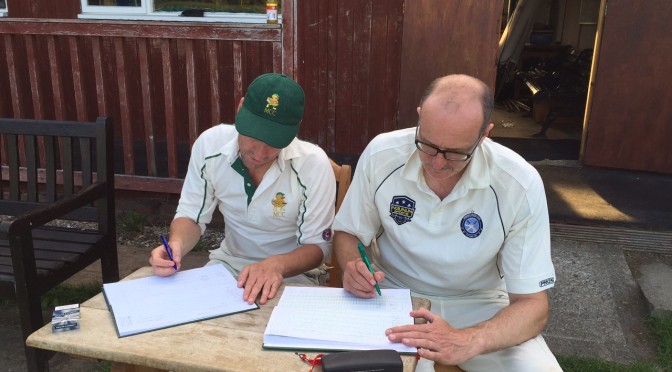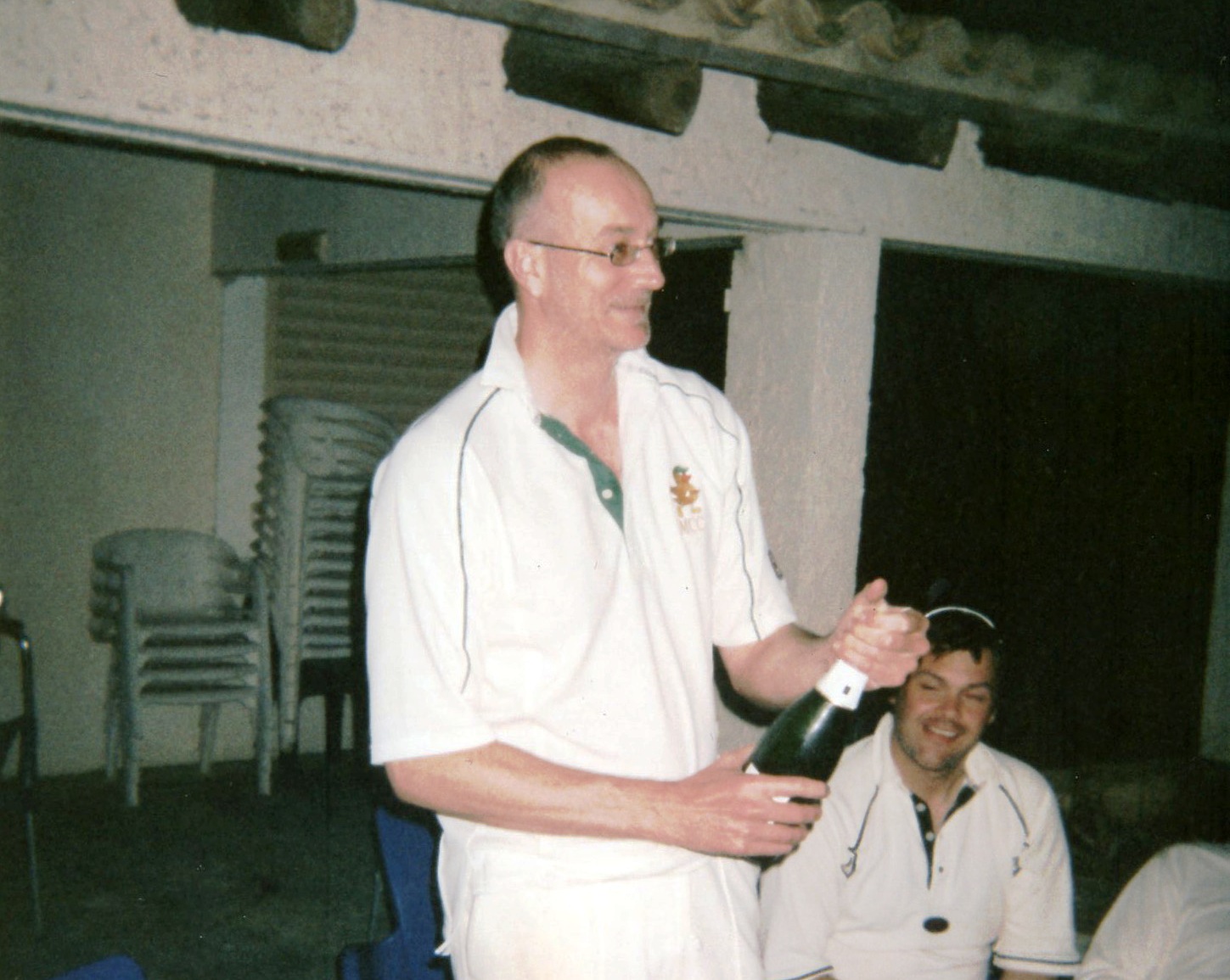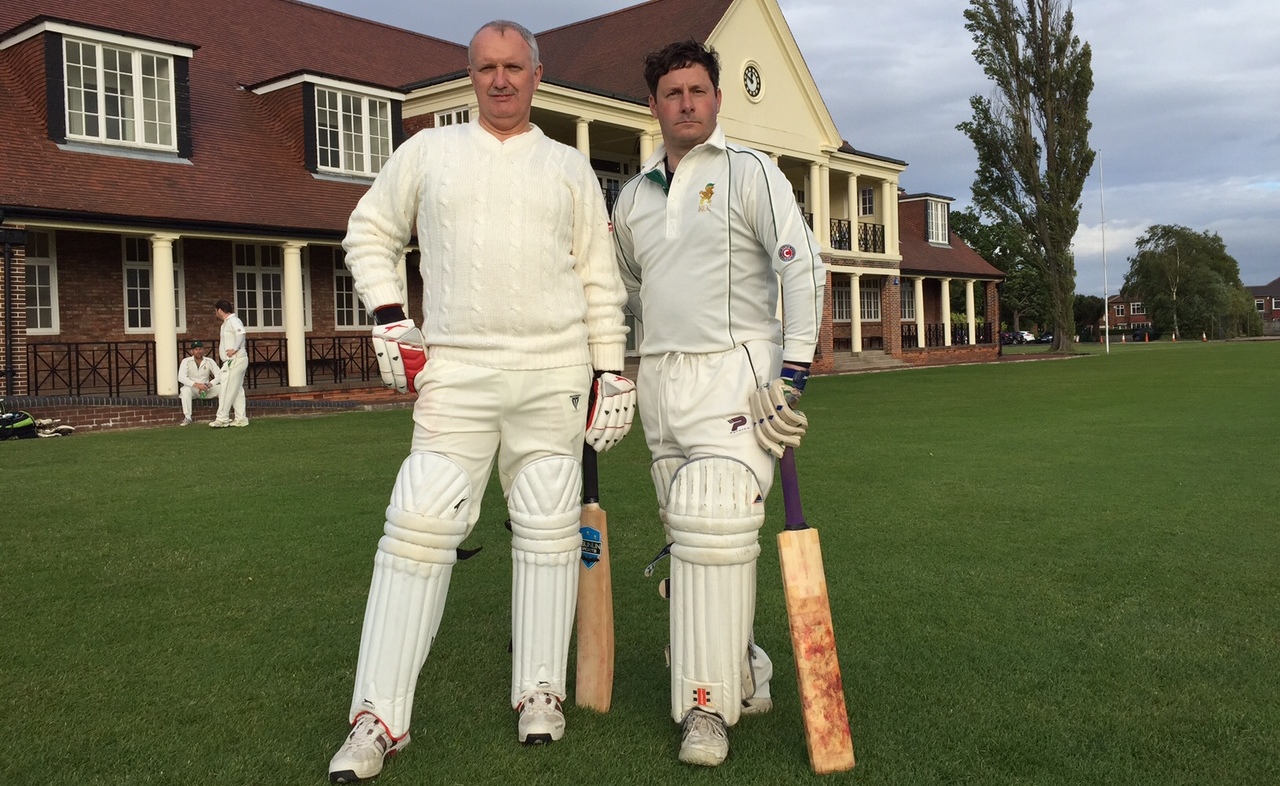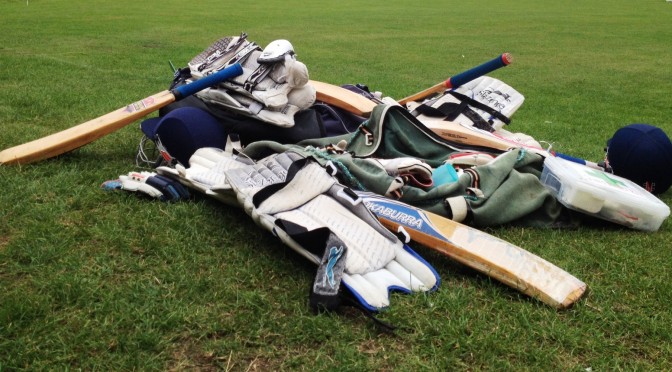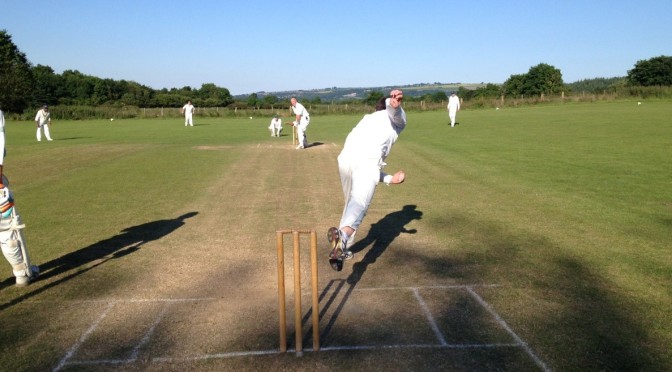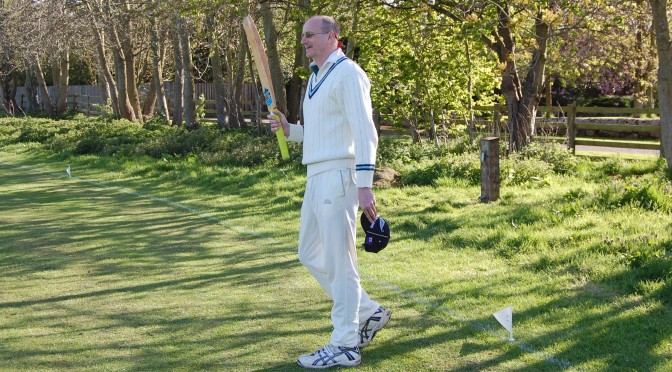With Anglo-Australian relations on a knife-edge this week, it has fallen to a neutral to provide coverage of this match, thus negating any calls of bias that might otherwise surround descriptions of the activities of players from either camp. The first of two Mallards fixtures this week saw us host Sparta for the return fixture; with the Mallards showing signs of confidence after a close-run first leg a few weeks previously.
The club Despot had taken it as a personal challenge to attempt to give as many members of the squad as possible a run out over the course of the week, and in finding 21 volunteers he outdid himself. This gave the opportunity to welcome returning Mallard Hayward back for his first appearance of 2015 and a new face in the (slightly genetically-modified) form of Cookson. In true Ashes spirit, Van Doorn was accepted back into the side after promising not to give any more controversial LBWs.
Vice-Skipper Butcher lost the toss and Sparta opted to bat first under threatening skies and on a green-looking pitch. Butcher seized the opportunity to give the Mallards’ very own left-arm Australian swing bowler the “new” ball from the pavilion end. The ploy worked, and Van Doorn picked up the early breakthrough, clean bowling Rushton for 9 in the third over of the innings and taking revenge for the two fours taken off his first over.
Having taken the bold step of not giving the second over to the left-arm seamer from New Zealand, and therefore being in charge of surely one of the more threatening new ball attacks in world cricket, Butcher tossed the ball to Cookson. This turned out to be a wise move as the newcomer immediately found the mark and was very difficult to get away.
With a light rain falling, extinguishing any remaining signs of life from a ball which already had seen a few too many summers, the batsmen were able to settle into their work. Any loose deliveries were punished with a short boundary on the downhill side of the field, and the score moved along to 52/1 after 8 overs. Van Doorn finished with 1 for 26 and Cookson no wicket for 18.
Cox and Scott were brought on to try and find a breakthrough, with Cox finding it in his second over, bowling McGuinness (not that McGuinness) for 27. Cox was immediately rewarded by being shielded from the carnage he set up as new batsman Pearson and opener Roe started to free their arms. Some aggressive stroke-making and vintage Mallardian fielding saw the score rocket from 68/2 after 11 overs to 103/2 after 14. Watson however picked this moment to claim his first wicket in the green and gold (am I allowed to call it that?), picking up the wicket of Langley, well caught down the leg side by keeper Kent for just 8. Langley had arrived at the crease after the retirement of Pearson, and was not able to keep up with the fierce pace of his predecessor.
Scott’s four overs proved a mixed bag but ended with better figures (0-27) than his language might have suggested, while Watson recovered admirably after his first over went for 18, to see a return of 1-34. Cox had returned to the crease after the worst of the bloodshed had abated but was unable to find another wicket, and finished with 1-20.
Stig’s optimism at the outset of the match was such that he agreed to an extended match, 22 overs per innings as opposed to the usual 20. This possibly had caused confusion as he had to find two bowlers to step up for the last two overs, and he chose Hayward and himself. Hayward suffered some harsh treatment going for 18 off his, while Stig found the fourth wicket of the innings, by bowling Pentland for 0, for figures of 1-9.
An imposing total of 163-4 had dampened the early enthusiasm of the home team, as any loose bowling was severely punished and some of the fielding just showed what hospitable hosts the Mallards can be. However, the pitch was good and the MCC line-up sported a number of stroke-makers, so there was still a chance.
Pulses quickened just a touch as opener Kent guided the first ball of the innings nonchalantly to the backward point boundary. Steele likewise found a brace of crisply-timed fours in the second over, and all of a sudden things looked a touch interesting. Unfortunately Kent’s promising innings was brought to a close as he was adjudged LBW off the first ball of the third over for just 6.
Hall, coming in at first drop, looked to be timing it well, particularly after launching a 6 over long on, and with Steel took the score to 29/1 after 5 overs. Unfortunately, he was then the second to depart, bowled for 10 by Nelson as he looked to keep the scoring rate up. Cox, after a couple of balls to get his eye in, scored 4, 6 & 4 in four balls to swing a little momentum back to the Mallards. A double bowling change brought a restriction on the scoring rate before Cox, following Hall’s example of feeling the need to keep the runs coming, was bowled for 15 by Pentland in the 9th over.
Butcher was Steele’s next partner, with the latter continuing to look fluid, despite a lack of significant partnerships. Butcher was unable to find his usual timing and was eventually caught off the bowling of Elliot for three with the score at 60/4 after 12 overs. This left the required run-rate at approximately 10 for the last 10 overs, a statistic the incoming Hayward chose to completely ignore, taking 17 balls to get off the mark. This perhaps was no bad thing, as the need for dignity in the scoreline, rather than an outright win was becoming a real concern.
The dip in the scoring rate did not escape the attention of Steele, who was eventually bowled by Pearson for 23 runs. Steele’s batsmanship is very much the stuff of a purist; this innings was another display of timing and elegance, something that was even acknowledged by the now rather cocky Spartans.
Jordon was next in, and was clearly not of the same mind as Hayward when it came to the acceptable nature of dot balls, and promptly called for an ambitious single only to be run out by a distance.
It was about now that the visitors showed they felt they had things properly tied up, by bringing on wicketkeeper Hunter to bowl his own unique offerings. These consisted of the ball coming out of the hand much more vertically than usual, reaching a height just below that of the aircraft approaching Newcastle airport before dropping rather steeply somewhere around the batsman. There aren’t many textbooks that teach you how to deal with this stuff, so it was probably inevitable that he would pick up a wicket, in this case that of Scott.
Watson lasted only a few balls before being bowled by Spratt, then Hayward’s vigil came to an end when he was caught off the bowling of Langley for 11. So it came down to the last pair, Cookson and Van Doorn to see out the last two overs, something they did with ease, even taking the score past 100 in the process.
Mallards final tally was 105/9 meaning this was an undeniably heavy loss by 58 runs. All in though, this was a gutsy performance against a strong Spartan team, who were not keen to repeat the close-run encounter of last time.


